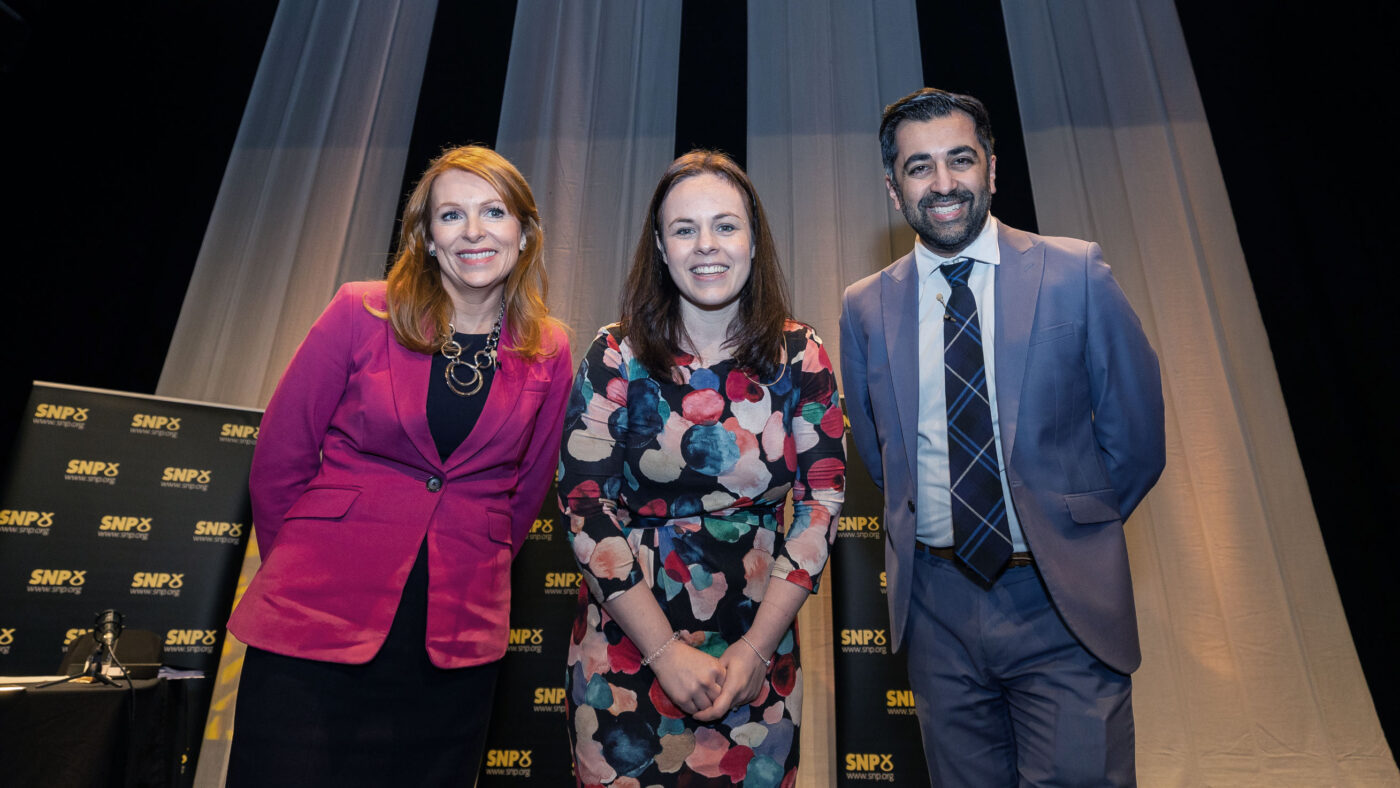The gloves are off… Pulling no punches… throw in the towel… Boxing metaphors are peculiarly appropriate to this SNP leadership contest. Because by the end of it, the party risks looking as if its leaders are punch drunk.
This has already been a surprisingly ferocious contest, partly because the timetable drawn up to find a replacement for Nicola Sturgeon is so tight – the victor will be announced in less than three weeks from today – but also because, there being no obvious successor, there is everything to play for.
Last night’s televised hustings debate will have caused much anxiety among the party’s higher councils and will leave party members themselves bemused and confused. Whatever happened to the famed togetherness under both Sturgeon and her predecessor, Alex Salmond? Wasn’t the SNP’s electoral success at least partly founded on its unified position on a breadth of policies?
For example, Kate Forbes, who may or may not be the front runner, described the administration in which she serves as finance secretary as ‘mediocre’. She then turned her guns on her chief rival, Humza Yousaf, as if he were an opposition leader and not a cabinet colleague:
‘When you were a transport minister, the trains were never on time, when you were justice minister, the police were strained to breaking point. And now, as health minister, we’ve got record high waiting times.’
Mr Yousaf had his own one-liners to deploy, the best of which was in response to Forbes’s claim that only she was capable of appealing to those unionist Scots who had voted No in the 2014 independence referendum: ‘You can’t even keep Yes voters onside!’
For observers without a dog in this particular fight, this is all good stuff, politics in the raw. And for those of us of a pro-UK bent, there’s a slapstick quality that is hard to resist. True, the party may well get its act together after this particular contest and once again dominate the Scottish political scene. But just give us this tiny morsel of pleasure; let us enjoy it while we can.
So, can the SNP reunite after this?
That is a more urgent question than all the doubts about processes and the conditions on which another referendum might be granted. Forbes said last night that she would appoint both Yousaf and Ash Regan, the third candidate, as ministers in her future administration (although she couldn’t resist a barb in relation to the former: ‘Maybe not in health’).
But would that be possible, given how little she obviously thinks of Yousaf’s political abilities? Appointing someone she disparaged so publicly for his failures across three departments would surely risk her being accused of not valuing whichever department he was subsequently placed in.
And how could Yousaf appoint Kate Forbes to a Cabinet post after she publicly derided the record of the current administration as mediocre? Would either of them even be willing to serve under the other after the bitterness of this contest?
Oddly, on the only issue that SNP members actually care about, a degree of consensus has emerged, at least between the leading candidates.
Both Yousaf and Forbes seem to have rejected the idea put forward by Nicola Sturgeon – put forward after the Supreme Court ruled in November that Holyrood cannot hold another referendum without Westminster’s approval – that the next general election would serve as a ‘de facto’ referendum, with a nationalist majority of votes interpreted as a mandate to negotiate independence.
This idea is hated by SNP MPs and doesn’t have a lot of support in Holyrood either. The indications are that both the leading candidates would prefer to build a national consensus for independence, establishing the kind of ‘settled will’ that successfully delivered devolution in 1999. (Ash Regan, meanwhile, remains the Zoomers’ candidate of choice – committed to a ‘de facto neverendum’, insisting that a nationalist majority at any level of government would be a mandate to negotiate independence, and also to erecting a giant ‘independence thermometer’ in George Square, Glasgow. Don’t ask.)
If a more sensible referendum policy is the only positive thing to emerge from this contest, the SNP will have taken a step forwards. Demanding to re-run the vote and hoping to reach ‘50% plus one’ during the heat of the campaign would be a recipe for division and disaster in a newly independent Scotland. But that has been the hope of most SNP members for nearly a decade and was the avowed policy of Sturgeon.
Nevertheless, if the party collapses in on itself over everyday issues of governance and culture war arguments, this new, mature approach to independence may not end up doing the nationalist movement much good. There remains also the risk that a large section of the party will lose patience with a gradualist approach. Most of them joined the party to achieve independence tomorrow and to humiliate and defeat the hated Unionists. All this talk of consensus and persuasion, let alone having to wait for the promise of freedom, is definitely not what they signed up for.
And if Regan can yet appeal to those like-minded Bravehearts, this contest could turn out to be even more unpredictable than we thought.
Click here to subscribe to our daily briefing – the best pieces from CapX and across the web.
CapX depends on the generosity of its readers. If you value what we do, please consider making a donation.


